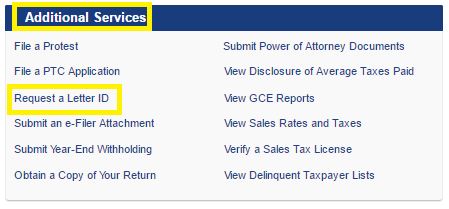
Essentials, Elements, and Errors in Contract Law
Essentials, Elements, and Errors in Contract Law
As a small business owner, you are constantly faced with contracts. A contract is an agreement between two or more parties in which there is a promise to do something in return for a valuable benefit. You may have contracts with customers, vendors, employees, contractors, and other individuals or businesses. Oral agreements are sometimes used, but formal written contracts provide legal documentation. Contracts are legally enforceable and should be used to safeguard your resources. Small or new businesses may be more susceptible to mistakes when it comes to the numerous types and complex legal terms of contracts. The Law Office of EC Lewis PC can help create contracts, clarify existing or new contracts and agreements, and provide protection before or after you enter into any binding contract, making sure you understand the essentials, elements, and common errors in contract law. This post will cover contracts that are essential to the success of your small business, the elements of a solid contract, and the most common errors made in business contracts.
1. Essential Contracts
Contracts help to build relationships and protect your business. With the right legal documents, you will protect your property (intellectual and actual), avoid contract disputes, and limit your liability. Here are some contracts that are essential to your small business.
Service Contract – outlines exactly what you will provide or be provided by another company
Employment Agreement/Employment Offer Letter – specifies the rights and obligations of every full time or salaried employee; an employment offer letter should include all of the components of the employment agreement
Independent Contractor Agreement – signed agreements should be in place for every consultant or short-term employee
Equipment Lease – use this contract to lease equipment or lease out your own equipment
Business Lease – the lease for your office or retail space should fit your needs, have a sufficient lease term, clearly spell out the landlord’s obligations, and limit the amount of rent/tax increases allowable
Confidentiality or Non-Disclosure Agreement – potential employees should sign this before interviews, so your proprietary information does not leave the building
Non-Compete Agreement – prevent a former employee or business partner from competing against you while they are employed and for a specified period of time after leaving your company
Software or Website Terms of Use Agreement – understand and comply with the terms of software licensing and website use agreements to avoid violations and potential fines or litigation
All of these contracts need to be carefully thought out, crafted, and reviewed. A small business attorney will help you through this process and represent you in the event of a dispute or litigation.
2. Elements of a Solid Contract
Entering into contracts with customers or clients for the sale of your products or services is an integral part of your small business. There are key elements every contract should contain. Without them, your contracts may be invalid.
Offer – an offer is an invitation or putting the word out that you are accepting contracts, like an advertisement in a store window
Acceptance – the customer accepts by taking you up on your offer; details of offer and acceptance will vary
Capacity – those who enter into contracts must be of mental, physical, and legal capacity to do so
Undue Influence – negative influence or coercion to enter into the contract is not permitted
Intention – both parties must intend for the contract to have legal consequences
Legality – certain formalities must be followed to make a contract legal; the purpose of the agreement must not be illegal
When key elements are omitted or one party does not comply with the terms, a contract has been breached. Whether you are allegedly at fault or the one who has been offended, a small business attorney will help you through your contract issue(s).
3. Errors Most Often Made in Contracts
Negotiating contracts is daunting, but it means you are in business. It also means you have to make decisions that have real legal implications. One poorly drafted or neglected contract can have devastating results for your business. You can avoid some of the most common mistakes before it is too late.
Not Having a Contract – do not allow the small or intimate nature of your business to leave you unprotected; contracts are necessary regardless of your business structure or employee relationships
Not Recognizing a Breach – have a clear process in place for dealing with a failure to pay, a product not delivered as expected, poor quality, or bad behavior
Not Providing an Opportunity for Termination – think beyond the breach; every business contract should have a way for both parties to exit the contract
Not Thinking About Dispute Resolution – consider mediation or arbitration before litigation; these are far less costly options
Not Specifying That a Contract Can be Assigned – make sure every contract can be assigned in the event of a merger, sale, or purchase of the company if an acquisition is the goal
Not Considering Intellectual Property – from day one, have everyone in the company sign a contract that assigns the intellectual property to the company
Before you commit any of these errors, a small business attorney can create, review, or revise your business contracts from startup contracts to ongoing contracts and specialty agreements.
If you need help with essentials, elements, and errors in contract law, contact me, Elizabeth Lewis, at the Law Office of E.C. Lewis, P.C., home of your Denver Business Attorney. Phone: 720-258-6647. Email: elizabeth.lewis@eclewis.com
Contact Us Today
Law Office of E.C. Lewis, P.C.
Your Denver Business Attorney
LICENSED IN COLORADO AND NORTH CAROLINA
Mailing Address:
501 S. Cherry Street, Suite 1100
Denver, CO 80246
720-258-6647
Elizabeth.Lewis@eclewis.com
Online at:
Real Estate Services for Business Owners
Elizabeth Lewis provides the following real estate law services to small and medium sized business owners in Denver and throughout Colorado:
- Commercial real estate purchases
- Legal review of commercial real estate leases
- Protecting your assets



 A letter containing the “Letter ID” number will be sent by postal mail to the address on record with the Department (so
A letter containing the “Letter ID” number will be sent by postal mail to the address on record with the Department (so